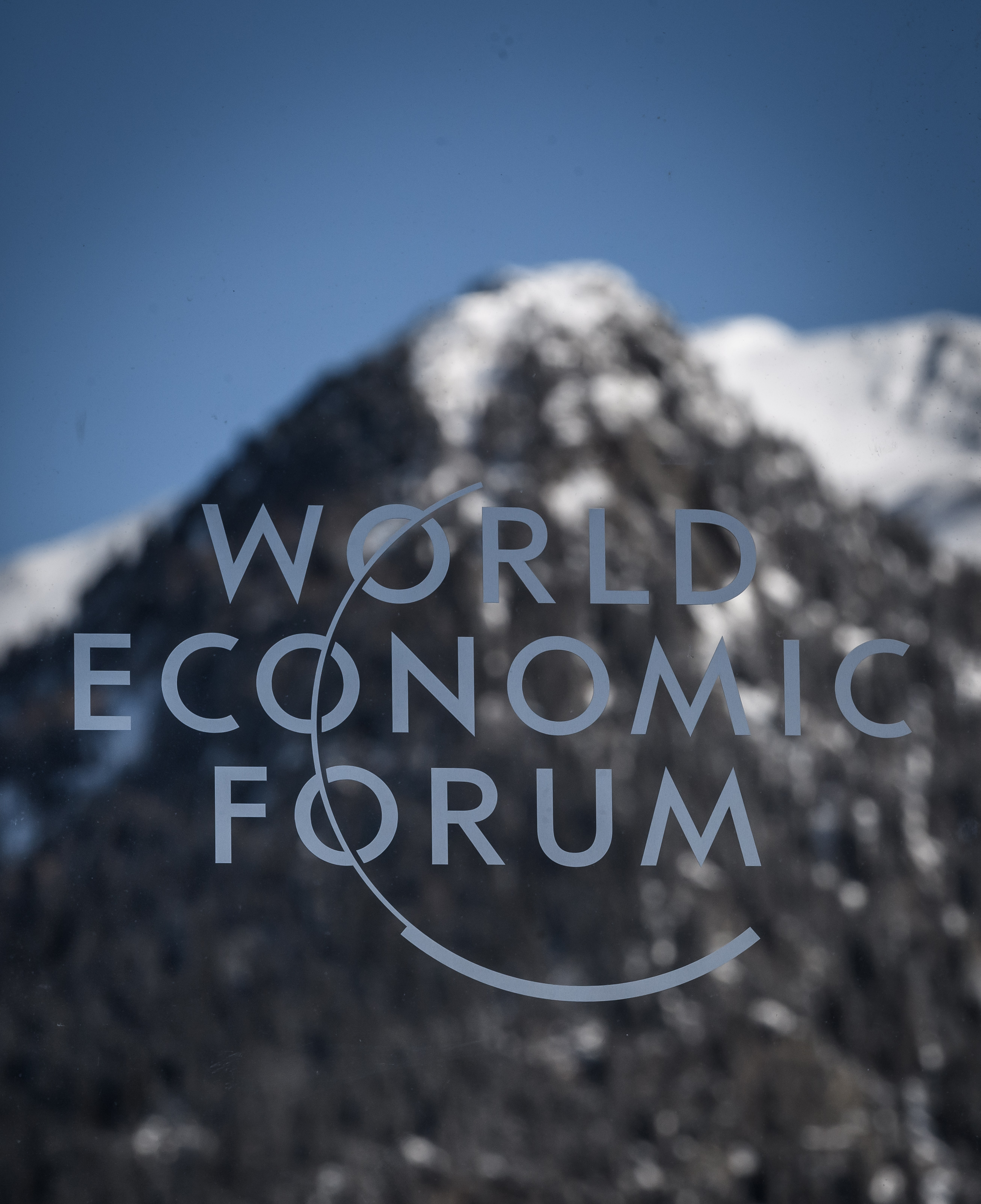
A sign of the World Economic Forum (WEF) is seen with mountains as background ahead of the WEF's annual meeting in Davos, on January 20, 2020. (Photo: AFP)
BEIJING, Jan. 29 (Xinhua) -- Facing pressing challenges like the sluggish global economy and the still-raging COVID-19 pandemic, world leaders have voiced their support for multilateralism during the World Economic Forum (WEF) Virtual Event of the Davos Agenda starting Monday.
Expounding China's stance on how to promote multilateralism in his special address, Chinese President Xi Jinping said "multilateralism is about having international affairs addressed through consultation and the future of the world decided by everyone working together."
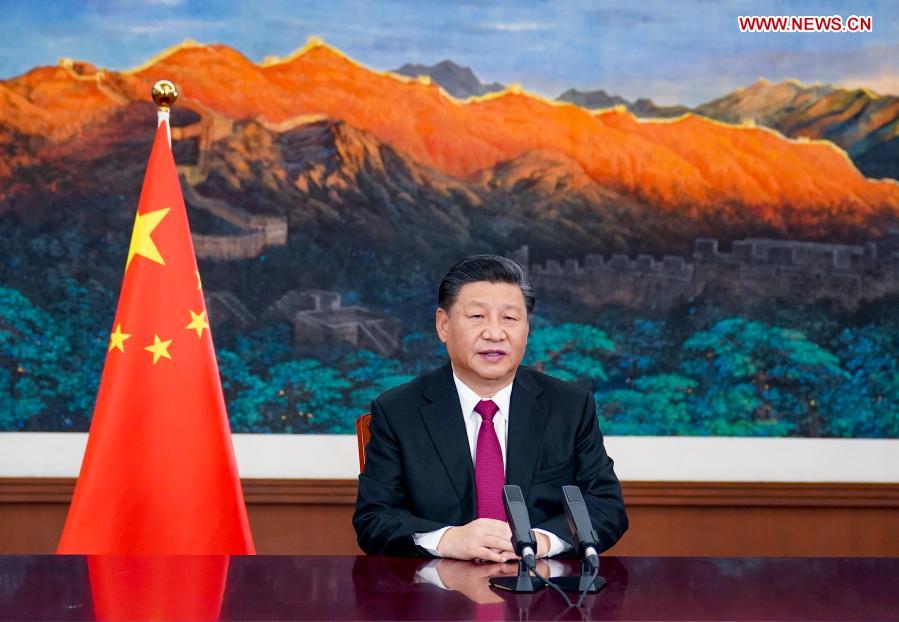
Chinese President Xi Jinping attends the World Economic Forum (WEF) Virtual Event of the Davos Agenda and delivers a special address via video link in Beijing, capital of China, Jan. 25, 2021. (Photo: Xinhua)
"To uphold multilateralism in the 21st century, we should promote its fine tradition, take on new perspectives and look to the future. We need to stand by the core values and basic principles of multilateralism. We also need to adapt to the changing international landscape and respond to global challenges as they arise. We need to reform and improve the global governance system on the basis of extensive consultation and consensus-building," he said.
Argentine President Alberto Fernandez on Thursday stressed the value of multilateralism for facing global challenges amid the COVID-19 pandemic.
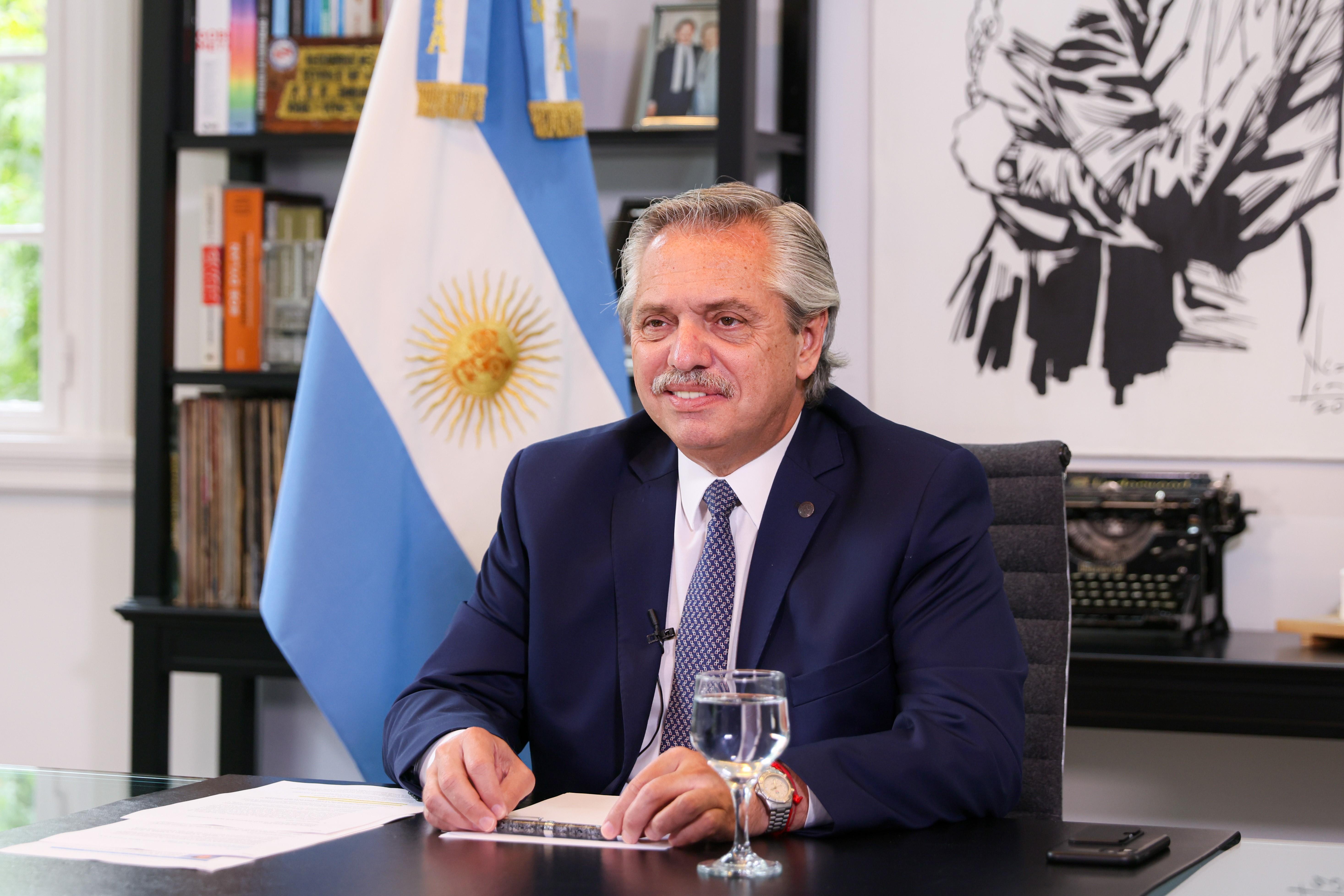
Handout picture released by Argentina's Presidency press office of President Alberto Fernandez addressing an all-virtual World Economic Forum, in Buenos Aires on January 28, 2021. (Photo: AFP)
It is "a unique moment to rethink development modalities and international cooperation schemes," said Fernandez at the meeting.
"At this stage, it is necessary to link multilateralism with a concept of multisolidarity, involving states, enterprises and workers," he said.
During his special address on Wednesday, Russian President Vladimir Putin warned that the COVID-19 pandemic has exacerbated preexisting problems and imbalances.
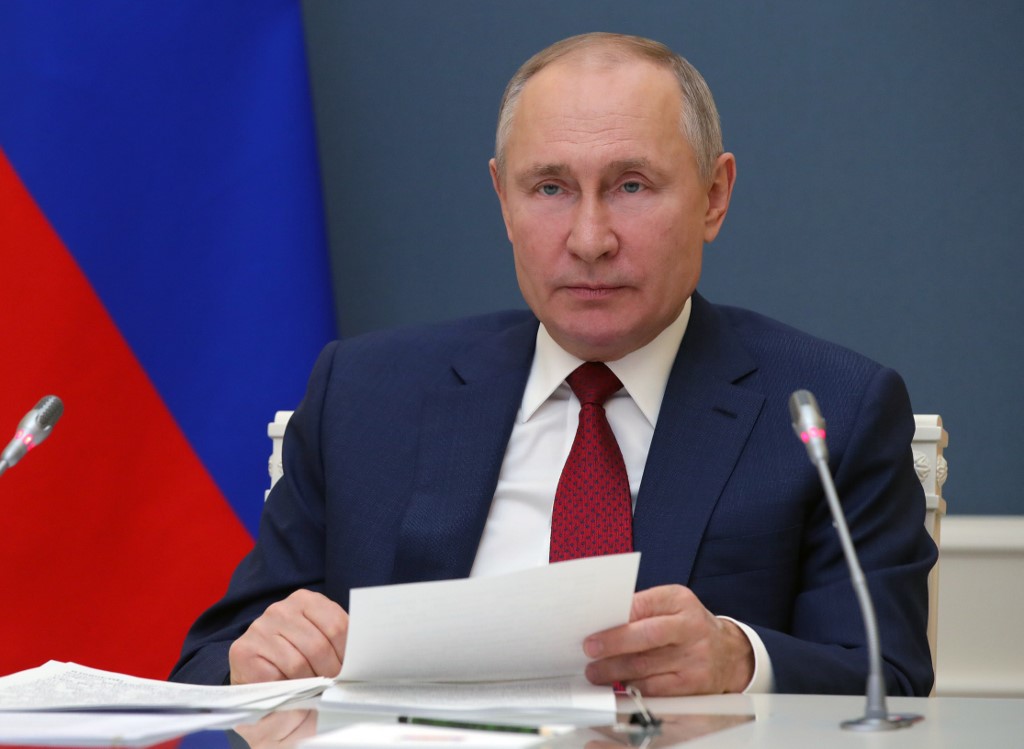
Russian President Vladimir Putin addresses the virtual World Economic Forum via a video link from Moscow on January 27, 2021. (Photo: AFP)
"We have every reason to believe that the tensions might aggravate further," he said. "International institutions are weakening, regional conflicts are multiplying, the global security system is degrading."
Putin called for more multilateralism, international dialogue and cooperation to tackle the current challenges.
United Nations (UN) Secretary-General Antonio Guterres, for his part, reiterated his call for "a reinvigorated, inclusive and networked multilateralism."
"We need one global economy with universal respect for international law; a multipolar world with strong multilateral institutions," the UN chief said.
"This is the hour of multilateralism," German Chancellor Angela Merkel noted, stressing that the World Trade Organization (WTO) and fair international trade are the cornerstone for international cooperation.
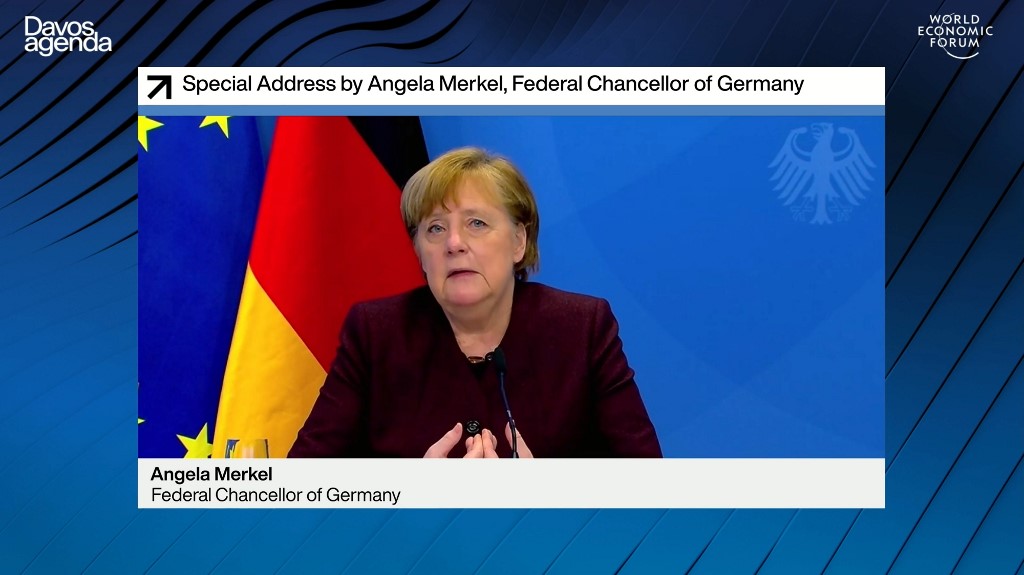
This video grab taken on January 26, 2021, from the website of the World Economic Forum shows Germany's Chancellor Angela Merkel speaking during an all-virtual World Economic Forum, which usually takes place in Davos, Switzerland. (Photo: AFP)
"I think the WTO is absolutely of the essence if we really want to be sincere about multilateralism," she said, referring to "bilateral trade agreements, multilateral trade agreements in Asia" as "very remarkable."
"We are facing a common threat and must act together. It is only through multilateral action that the world can solve its challenges," South African President Cyril Ramaphosa said in his address.
"The pandemic has underscored the vital importance of multilateral institutions in facilitating coordination, cooperation and common responses," he noted.


